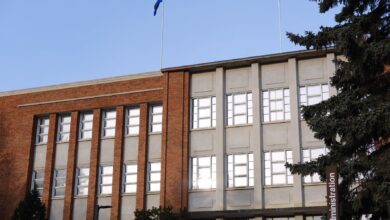Forum Recap: SUBStage 2
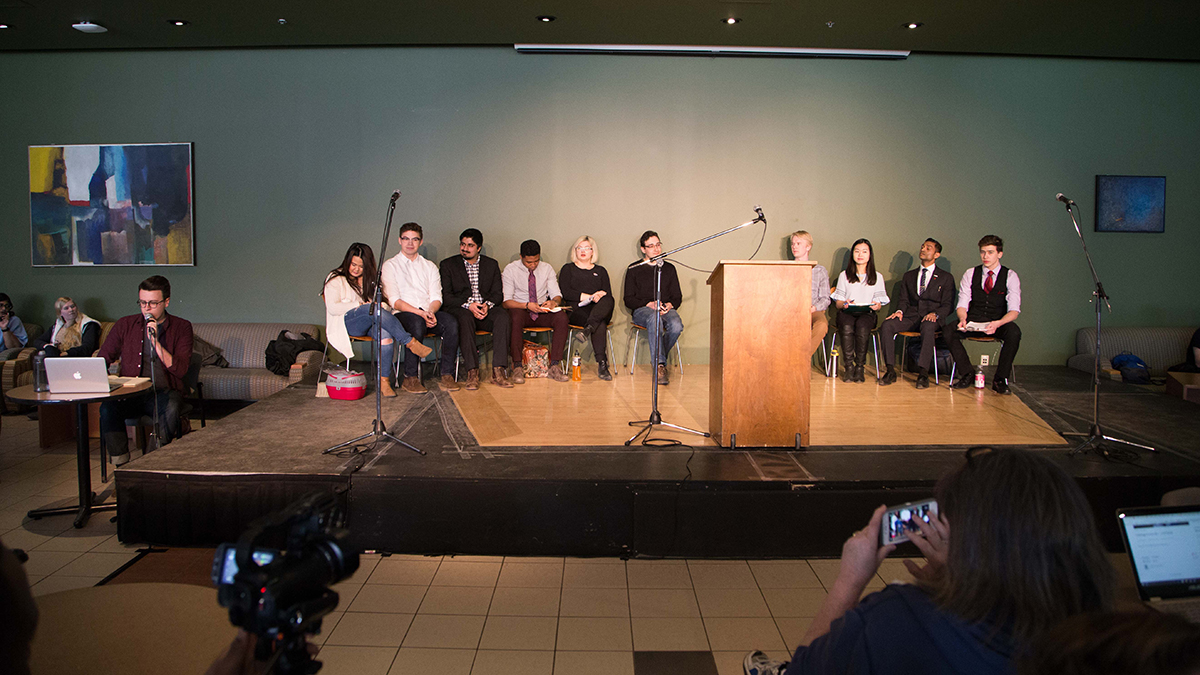 Joshua Storie
Joshua StorieExternally fighting for residents
- Read our introduction to the Vice-President (External) candidates and their platforms here: SU Elections Q&A: Vice-President (External)
While Vice-President (External) candidates continued to discuss tuition, residence concerns stole the spotlight at the second SUBStage forum.
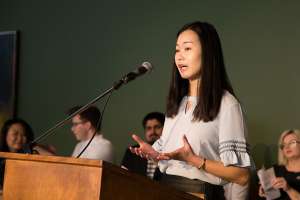
Student housing and rights for residents became the focus of the VP (External) debate portion of the forum. Candidate Lisa Zhang said student housing is not a component of her platform.
“Student housing is not one of my focuses,” she said. “I believe this can be an issue solved by the Vice-President (Student Life).”
Instead, Zhang said having more grants and bursaries would help students afford living expenses. She also said she will push for more employment opportunities and internships so that students can pay bills while also gaining experience and networking.
In contrast, Arts councillor and candidate Reed Larsen said residents’ rights are “incredibly important.”
“I do have housing in my platform,” he said. “I have been advocating for student rights in residence for the last year in Students’ Council.”
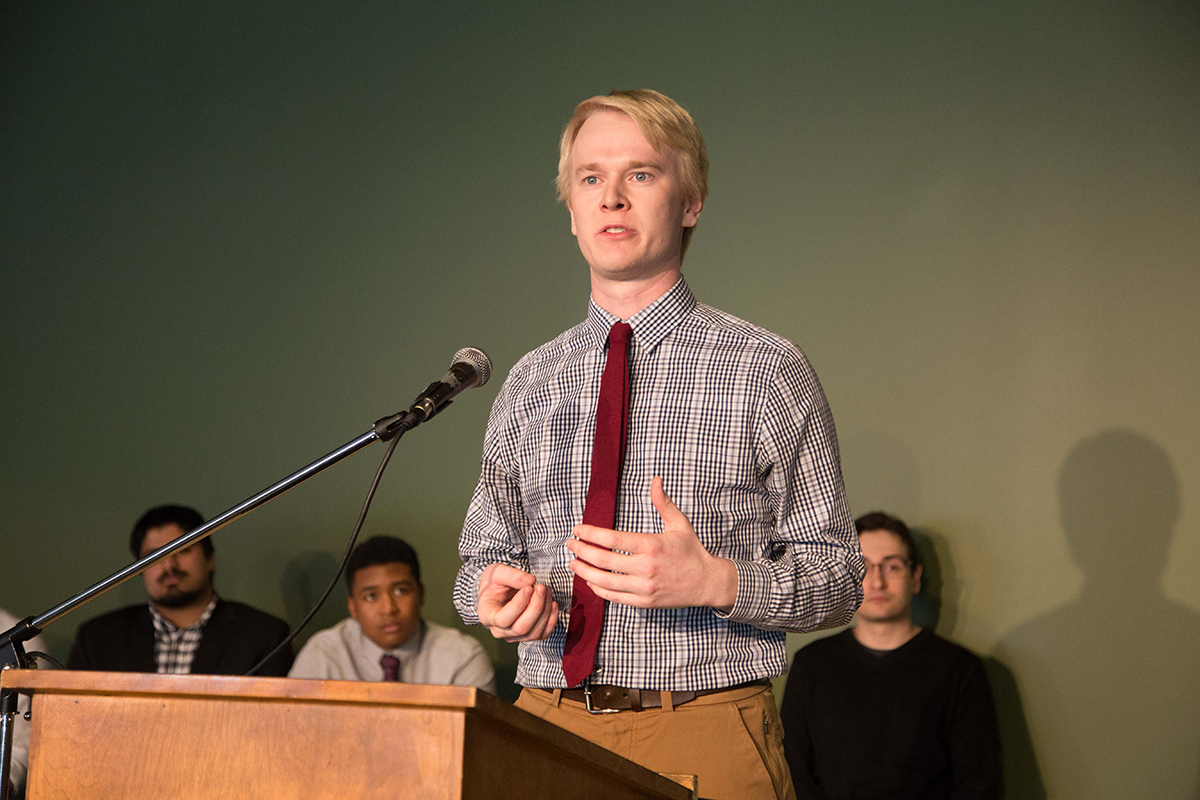
The grievances and appeals process in residence tends to be one-sided, Larsen added. Because they aren’t covered under the Residential Tenancies Act, students in shared residences have to go to civil courts to deal with their concerns where the university could seek maximum damages from students. Larsen said that rather than trying to bring university residents into the Residential Tenancies Act, he plans to create standalone residence legislation to “level the playing field.”
“The problem here is that when you are going to civil court to fight for your rights as a resident, you need to hire a lawyer to fight the university,” said Larsen. “Almost no student can afford this.”
In his answer, James Thibaudeau said international students and first-time renters need to be told their rights and how to use them.
“The people living in residence are the most vulnerable people living on campus,” he said.
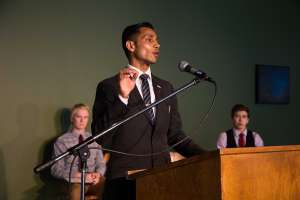
Finally, candidate Ankur Pandey was less concerned with the process for tenants. He recounted his positive experience going to court against his landlord and winning.
Larsen questioned opponents if they would support students in residence by asking that they be afforded the rights they miss out on because they are excluded from the Residential Tenancies Act.
“Absolutely I would,” Thibaudeau answered. “They need to have support available to them.”
Pandey took the opposite stance and defended the current rights, and said he believes there is currently a “fair process” for all. If any students have questions about their rights in residence, he said he would be open to helping them.
In her answer, Zhang said international students especially don’t understand their rights because of language barriers.
Larsen maintained that he would push for student residents to be covered under specific, standalone legislation. Other provinces and other populations in Alberta have existing regulations like this in place, he said.
“Alberta has done this for nursing homes and other specific instances,” Larsen said. “I am asking for students to have this.”
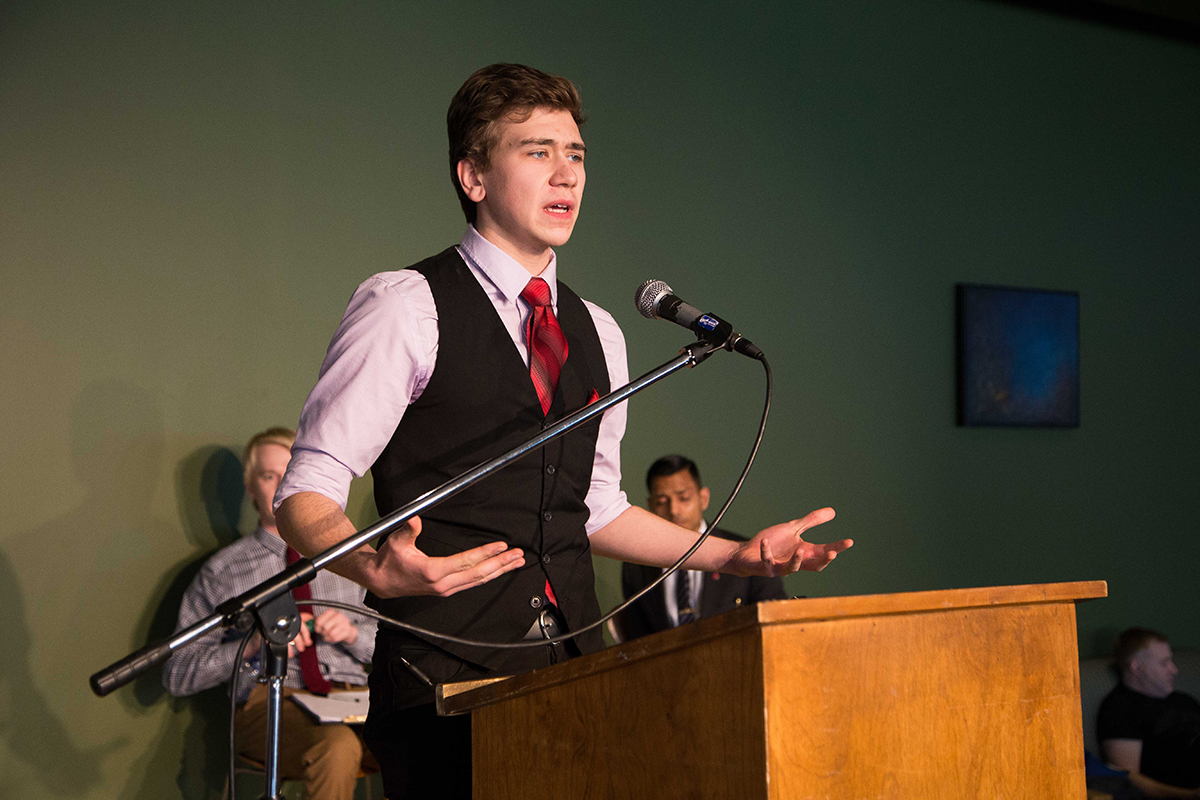
Diversity and #Bonut
- Read our introduction to the Vice-President (Academic) candidates and their platforms here: SU Elections Q&A: Vice-President (Academic)
VP (Academic) candidates Banana the Hamster and Shane Scott discussed diversity and inclusivity during the debate portion of the second SUBStage forum.
When questioned by Banana about diversity on campus, Scott said his platform prioritizes diversity among students and species alike.
“I think we can extend (our understanding of students) to species as well,” Scott said. “Banana is here, and Banana is running, and I think that shows we need to make sure we’re including all students, not just some.”

Scott asked Banana how she will work with candidates with different personalities, pointing to feline presidential candidate Donut the Cat. Banana’s interpreter responded that the two interacted online a lot, and are collectively known on Twitter as “Donana” and “Bonut.”
During the open question period, candidates were asked for their perspective on flexible education, citing the upcoming Bachelor of Arts degree renewal, which will cut 21 core credits from the degree. Scott said he understood the issues brought up by students about the loss of breadth and diversity in the program.
“I think the consultation process showed that it is very divided,” he said. “I don’t want to say it’s impossible to have that happy medium on either end, but I wish there had been more discussion about the renewal.”
Scott added that having the BA’s renewal is a good sign.
“It shows that the university administration is willing to work,” he said. “And more specifically the Faculty of Arts can make some changes.”
Students’ Union Native Studies councillor Nathan Sunday asked candidates how they would advocate for indigenous students, citing the unique challenges and barriers they face on campus. In his answer, Scott emphasized the value of diversity.
“I think we need to follow up on the steps that the university is taking in trying to decolonize and indigenize what our institution looks like,” he said. “Although it’s happening across campus, we need to make sure we’re doing it within Students’ Union, Students’ Council, and within the daily activities of the executives.”
Scott went on to note that he would be “more than happy” to work with organizations like Aboriginal Student Services and the Aboriginal Students Council to ensure all students are accurately represented.
Banana’s comments on the issue were “insightful,” according to the forum’s moderator.
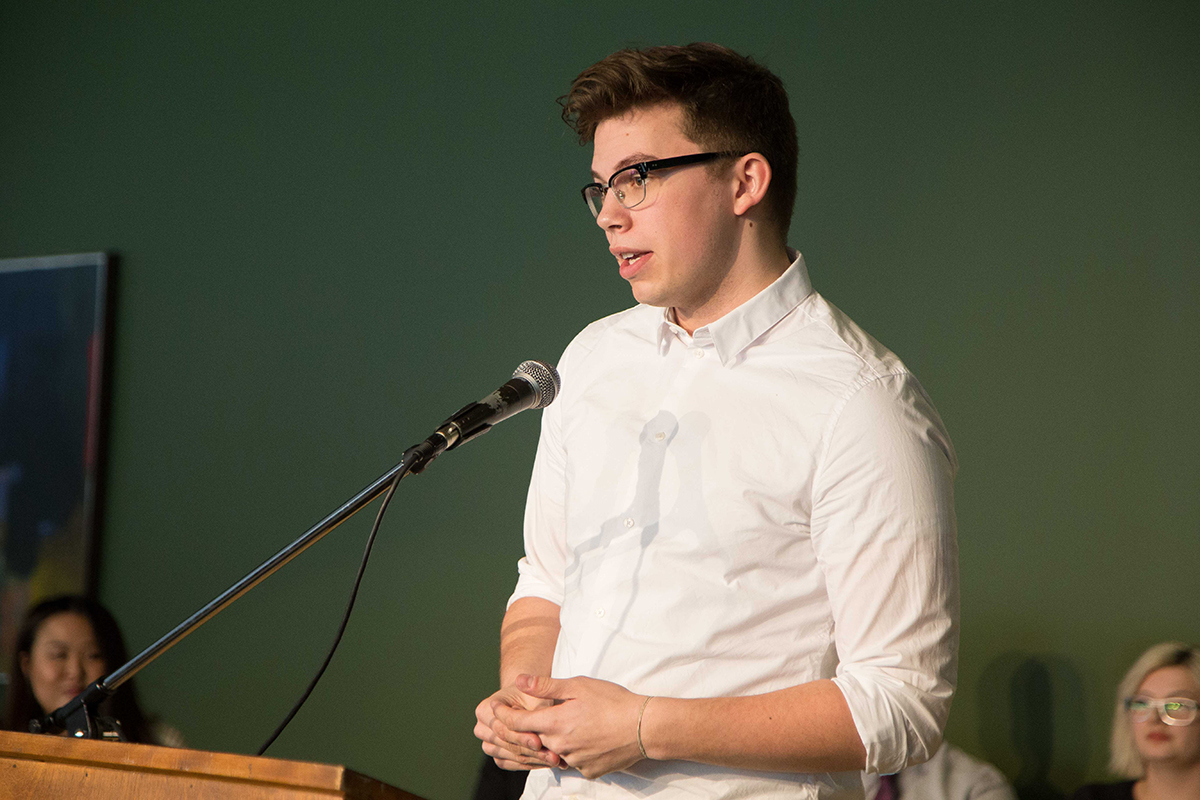
Time is of the essence for BoG Rep
- Read our introduction to the Board of Governors Representative candidates and their platforms here: SU Elections Q&A: Undergraduate Board of Governors Representative
Time management was a recurring theme in the Board of Governors Representative debate. Contender Armand Birk, a former president of Residence Saint-Jean, stressed the importance of time management and the ability to “get things in on time, and done right the first time” in the volunteer position. Birk questioned how his opponent, and current Vice-President (External), Mike Sandare would achieve this.
Sandare, who told the forum he thinks the position should involve 10 to 15 hours of work per week, replied that he’s been “prioritizing (his) time with things that matter most.”
“There are certain things I promised to students when I ran and what I’m doing is making sure that all of my promises are things that could have been finished during the year,” Sandare said. “As Board of Governors’ representative, I promise to prioritize the things that I say in this election.”
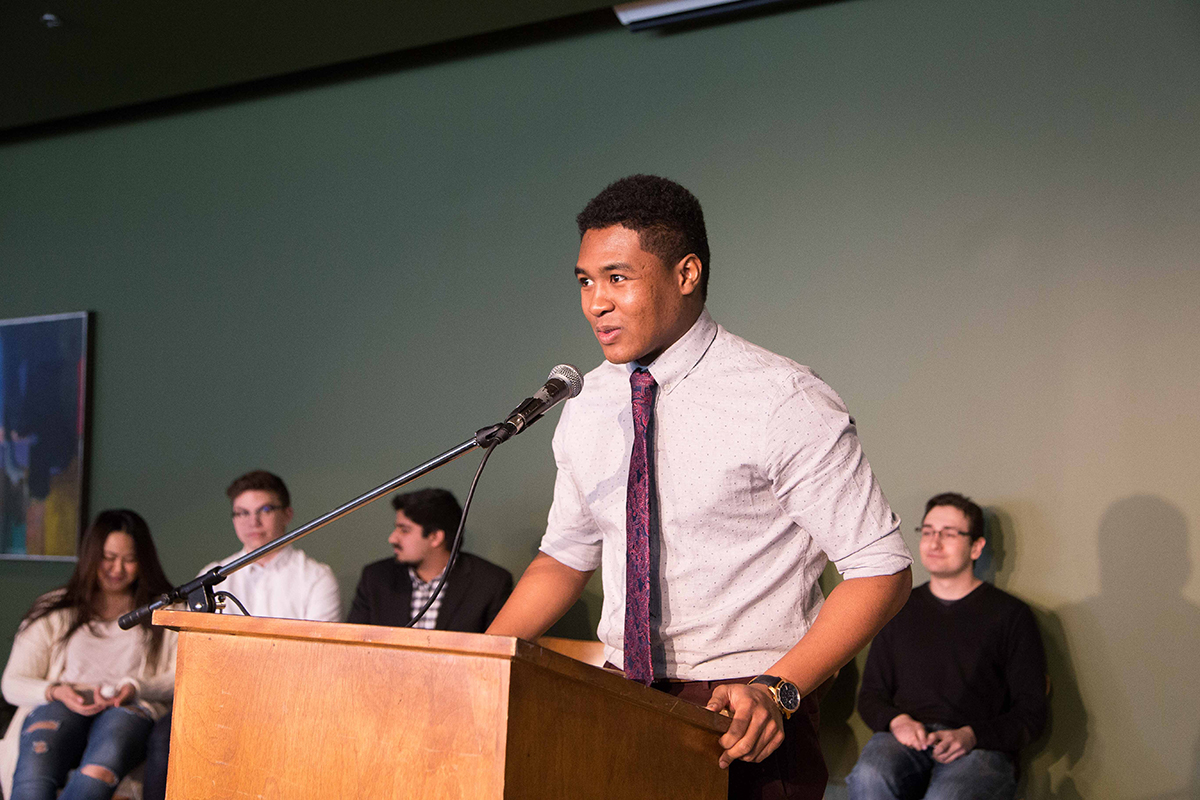
Birk answered his own question by citing his experience in time management while working two jobs, presiding over a fraternity, sitting as vice-president of a choir, and taking seven classes as a music student. He told the forum that he saw the Board of Governors Representative spending a “baseline” of 10 hours per week in the role, but saw the possibility of this shifting upward.
“If you look at my track record, you’ll see things always getting in on time,” he said. “And I don’t just deliver on things I run on, I deliver on more — short-term, medium-term, and long-term goals.”
In terms of actual work the representative will carry out, Sandare explained he wants “innovate” how consultation is done by reaching out to students to hear confessionals, rather than just using surveys and focus groups.
“If we continue using things like focus groups and consultations, that’s great, we’re reaching out to a few student representatives,” Sandare said. “But we need to be going beyond student representatives to reach the students-at-large.”
Birk said his approach to getting grassroots perspectives would be to consult individual student groups on campus, rather than the advocacy committee that represents all groups on one type. This would mean consulting with, for example, Residence Saint-Jean rather than the Council of Residence Associations, which is made up of all residence groups.
“When the Students’ Union consults the Council of Faculty Associations, the Council of Residence Associations or the International Students’ Association, they’re talking about what all the people in these groups want at once,” Birk said. “I want to make sure I talk to each president of every association.”
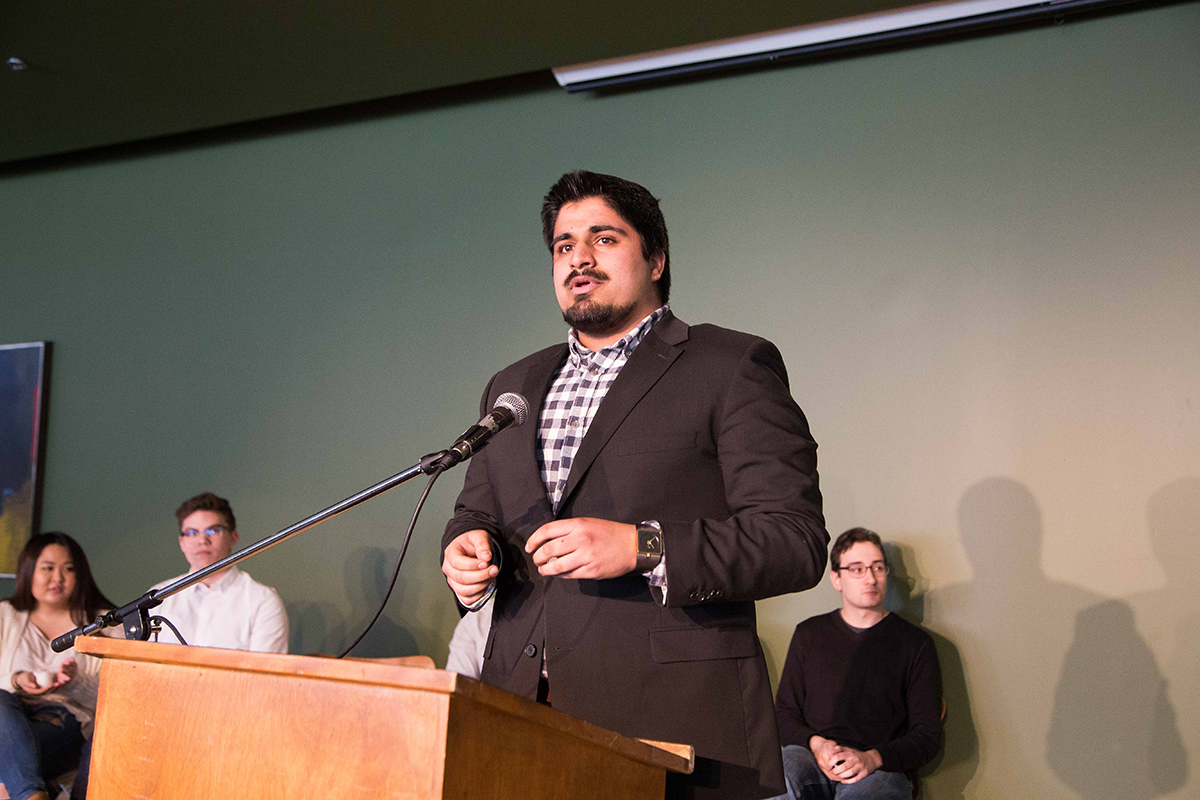
Show me the money
- Read our introduction to the APIRG Plebiscite “Yes” and “No” campaigns here: SU Elections Q&A: APIRG Plebiscite, UPass Referendum
In his second appearance of the election season, Alberta Public Research Group (APIRG) Plebiscite “No” side manager Alex Rodd gave a lengthier introduction that the one he gave at the Peter Lougheed Leadership College forum.
“Only 15 percent of (APIRG’s funding) comes back into granting student activities and groups, or their programming. APIRG’s largest expenditure is their staff,” Rodd said. “Their three employees collectively earn over $110,000 per year.”
Laura Kruse, manager of the “Yes” side, reiterated the points she made at the last forum on the kinds of projects APIRG support, such as black history month projects and workshops on the effects of colonialization.
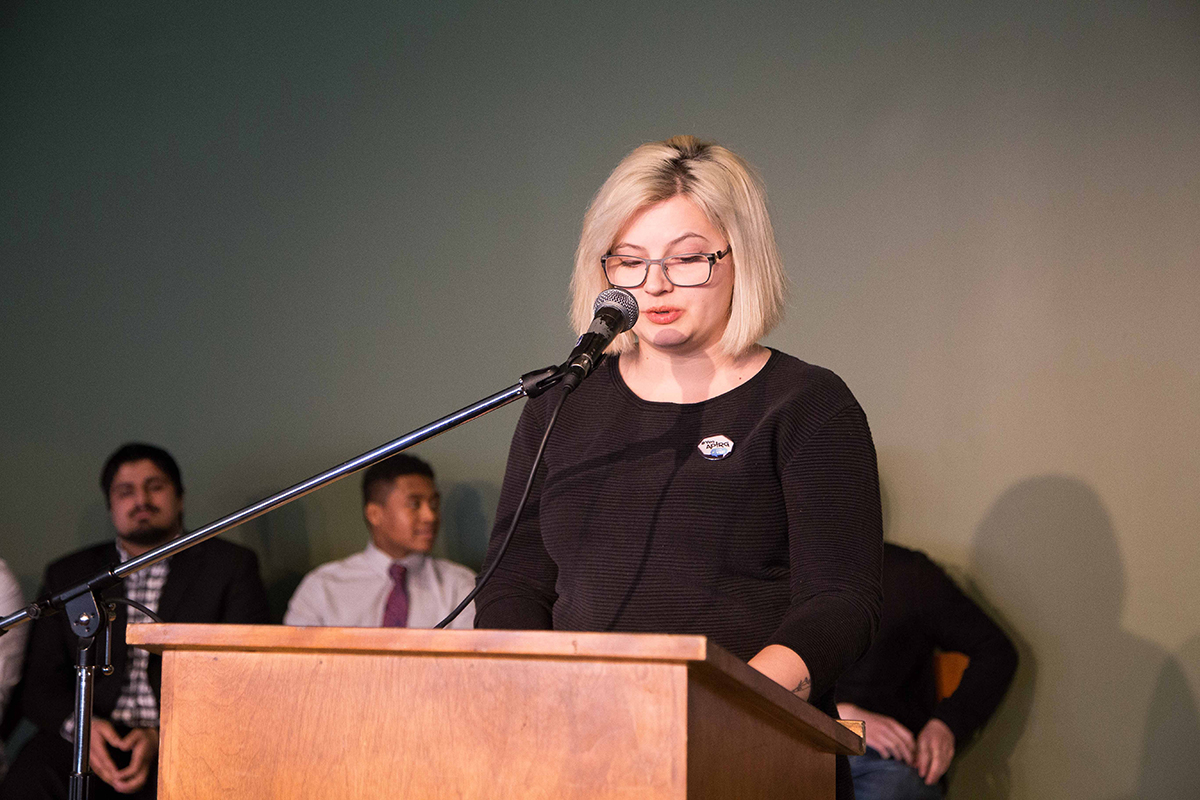
Rodd argued that because so few people know about APIRG, students aren’t aware they can opt-out of the fee.
Kruse responded that APIRG sends their outreach strategy to the Students’ Union every year to advertise that the fee is opt-outable, and that their current class talk reaches about 10,000 people a year.
“The no campaign is suggesting that because APIRG isn’t a household name, we should be defunded.” Kruse said. “This is a justification that we should be doing more work.”
Kruse also received several questions from Rodd and the public about the structure of APIRG spending outside of their grant funding. Kruse explained that the three staff members train the elected undergraduate Board of Directors on policy implementation and run programming.
“I just wanted to reiterate that this plebiscite question is not whether or not you support APIRG,” she said. “It’s whether or not you support the option to have that fee be available to those who need to use it.”



